Victoria’s Secret mulls return of new look show
- Published
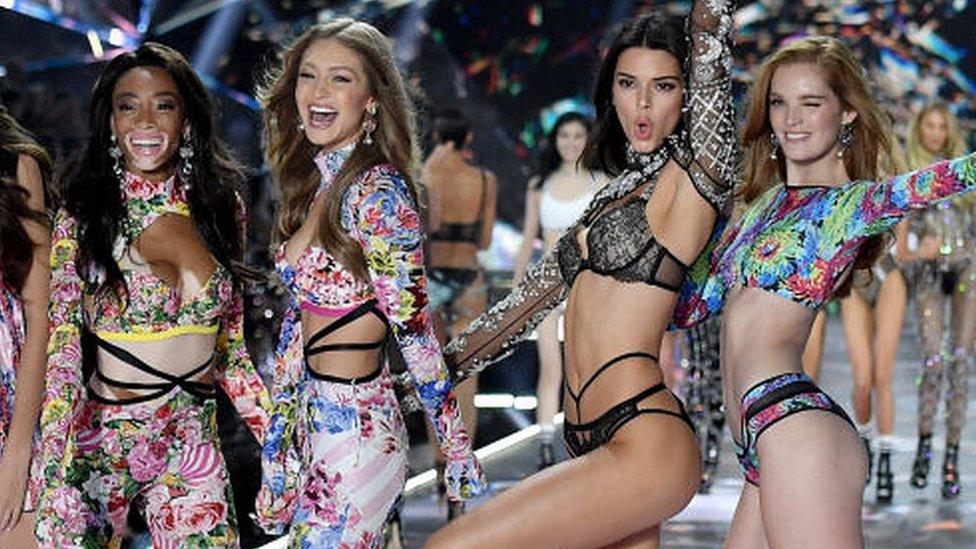
(L-r) Models Winnie Harlow, Gigi Hadid, Kendall Jenner and Alexina Graham appeared in Victoria's Secret's last show in 2018
Victoria's Secret is considering bringing back a "re-imagined" version of its runway show as the lingerie giant embarks on a "dramatic shift" for the brand.
The annual event was scrapped in 2019 amid a wider cultural move away from its hyper-sexualised imagery.
It comes as Victoria's Secret announced it had hired a line-up of new faces to promote the brand.
They include football star Megan Rapinoe and Priyanka Chopra Jonas.
Ms Rapinoe and Ms Chopra Jonas, an actress and producer. will form part of "The VS Collective" a group of women who will work with the company on "collaborations, business partnerships and cause-related initiatives".
Victoria's Secret was long famous for its annual fashion show where statuesque, supermodel "Angels" would strut the catwalk in little more than lingerie, feathers and gems.
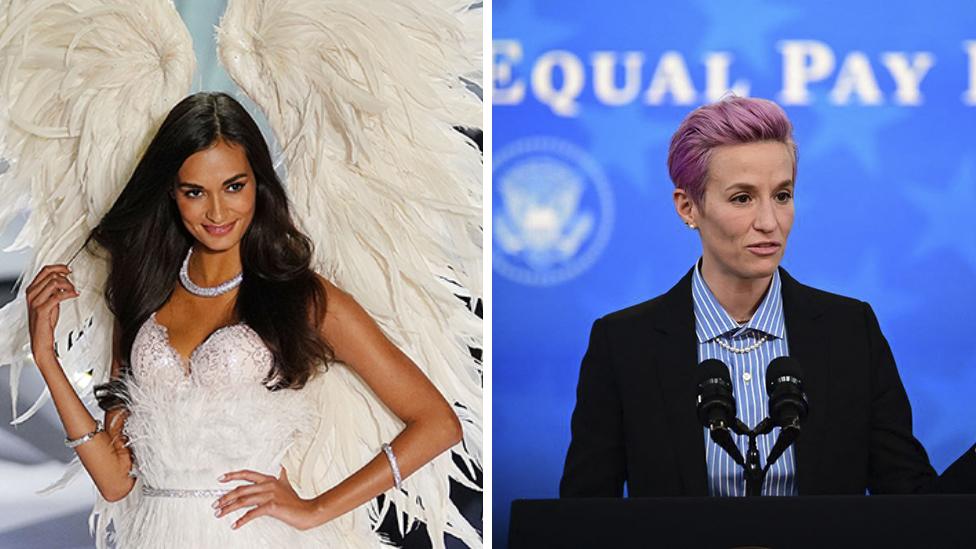
"Angels" like Gizele Oliveira will be replaced by women such as Megan Rapinoe as the face of Victoria's Secret
The company still generates billions of dollars in sales.
However, a cultural shift around the #metoo movement and body positivity saw rival companies such as Savage X Fenty - the underwear brand founded by singer and make-up mogul Rihanna - grow in popularity. More women were also choosing to buy comfortable, "althleisure" inspired underwear.
Victoria's Secret held its last show in 2018 before confirming its cancellation the following year as viewing figures fell to 3.3 million.
A spokesperson for Victoria's Secret said: "As an entertainment brand, with a huge cultural footprint we are reimagining what a fashion show could look like for us in the future."
The company announced The VS Collective - which it described as "a dramatic shift for our brand" - as it prepares to cut ties with its parent company L Brands in a spin-off later this year.
'Patriarchal, sexist'
Martin Waters, Victoria's Secret chief executive - the fourth appointed in five years - told The New York Times , externalthat "right now" he did not see the Angels as being "culturally relevant".
Ms Rapinoe, an LGBTQIA+ activist, was more blunt in her assessment of the company's past image, describing it as "patriarchal, sexist, viewing not just what it meant to be sexy but what the clothes were trying to accomplish through a male lens and through what men desired".
She added that it was "very much marketed toward younger women", a message which she said was "really harmful."
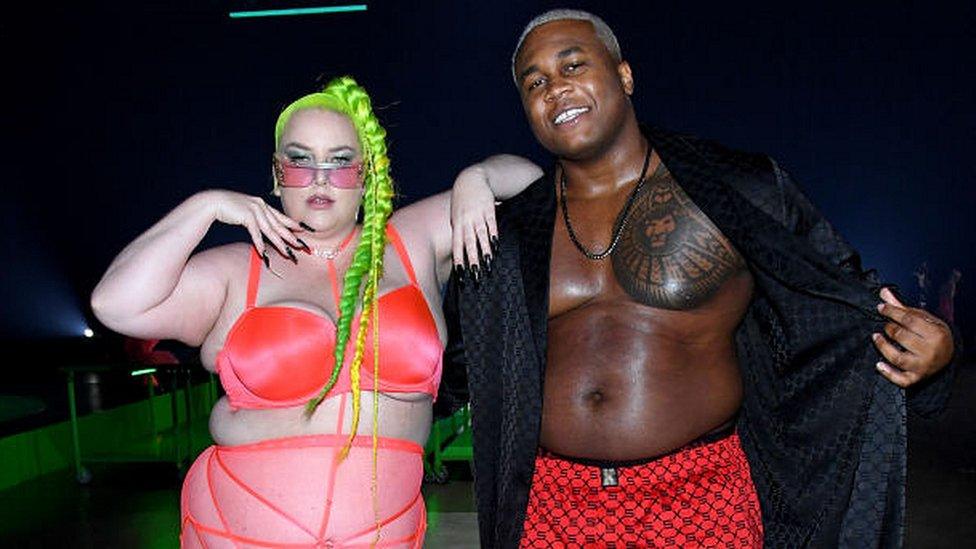
Musician and activist Margie Plus and model Soouizz both appeared in Savage X Fenty's show last year
The Victoria's Secret show was the brainchild of L Brands' former chief marketing officer Ed Razek who resigned from the firm in 2019. The previous year he had come under fire for making a transphobic remark. He also said audiences had no interest in seeing plus-size models.
Valentina Sampaio, an LGBTQIA+ activist who became Victoria's Secret's first openly transgender model two years ago just before Mr Razek resigned, has also joined the firm's "collective" alongside plus-sized model and "body advocate" Paloma Elsesser.
Victoria's Secret was bought by billionaire Les Wexner in 1982. Mr Wexner, the former chief executive of L Brands, recently announced that he would not stand for re-election as chairman emeritus.
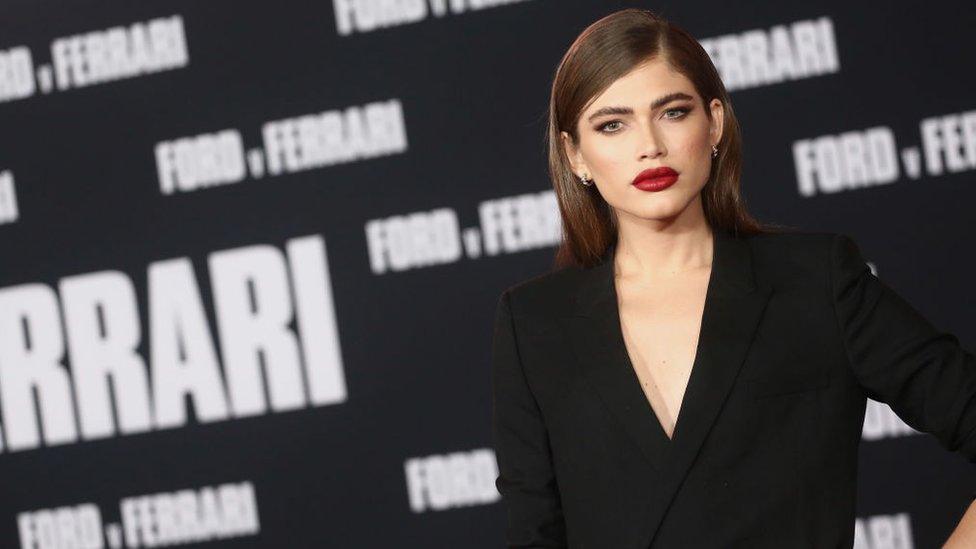
Valentina Sampaio has joined Victoria's Secret's line up of "icons and change-makers"
In 2019, Mr Wexner came under fire for his long friendship with the late sex offender Jeffrey Epstein. He employed Mr Epstein to manage his finances but cut ties with him in 2007. Mr Wexner said he was "embarrassed" by his friendship with Mr Epstein.
Commenting on why Victoria's Secret was launching the new partnership now, Mr Waters told The New York Times: "I've known that we needed to change this brand for a long time, we just haven't had the control of the company to be able to do it."
Mr Waters joined L Brands in 2008, overseeing its international division, before taking over as Victoria's Secret's new boss in November last year.
Related topics
- Published13 June 2021
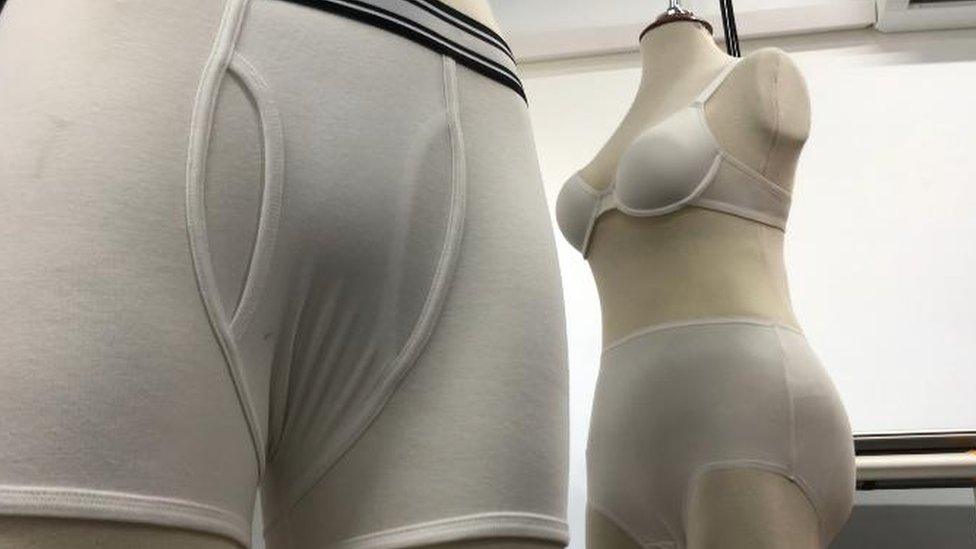
- Published10 March 2021
